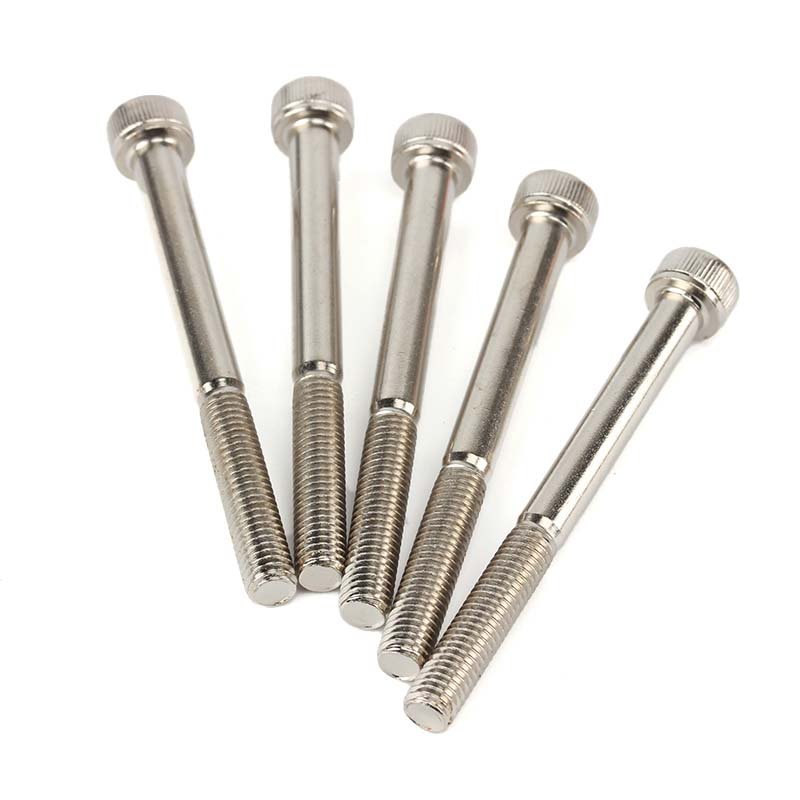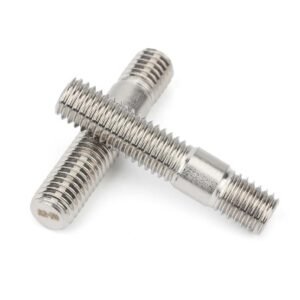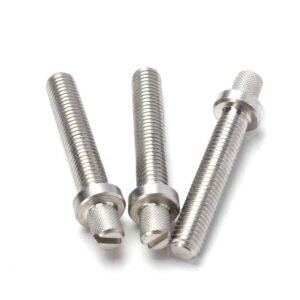Nickel Plating for Carbon Steel Fasteners
Introduction to Nickel Plating for Carbon Steel Fasteners
Nickel plating for carbon steel fasteners is a widely adopted surface treatment method that enhances corrosion resistance, wear performance, and aesthetic appeal. The process involves electroplating a layer of nickel onto the surface of fasteners made from carbon steel. This technique has evolved significantly, becoming a standard coating solution across multiple industries due to its durability and versatility.
At Flybear Fastener, we integrate advanced nickel plating technologies to ensure optimal performance in every fastener product, from automotive bolts to aerospace-grade screws.
What Is Nickel Plating? Overview and Technical Background
Definition:
Nickel plating is a surface treatment process where a thin layer of nickel is electrochemically deposited on a metal item, typically carbon steel in the fastener industry. The process includes steps such as surface cleansing, electroplating with nickel ions, and post-treatment finishes.
Technical Background:
Electroplating technologies have existed for over a century. Nickel plating specifically gained popularity in the mid-20th century when industries required higher corrosion resistance on steel components. Today, it is a common standard in the fastener sector for both functional and decorative purposes.
Common Applications and Suitable Fastener Types
Suitable Fastener Types:
Nickel plating can be applied across a wide range of fasteners including:
| Fastener Type | Compatibility |
|---|---|
| Bolts | ✅ |
| Nuts | ✅ |
| Screws | ✅ |
| Washers | ✅ |
| Self-tapping screws | ✅ |
| Rivets | ✅ |
Application Fields:
| Industry | Benefits of Nickel Plating |
|---|---|
| Automotive | Enhanced corrosion and wear resistance |
| Machinery | Prolonged component life under mechanical stress |
| Electronics | Excellent conductivity and aesthetics |
| Construction | Improved durability against outdoor conditions |
| Aerospace | Lightweight corrosion resistance and stable finish |
Key Performance Characteristics
Corrosion Resistance:
Nickel-plated fasteners offer remarkable resistance against rust, oxidation, and salt spray corrosion, especially important for marine and automotive applications.
Surface Finish and Appearance:
- Shiny metallic or satin finish
- Uniform coating texture
- Excellent adhesion
Surface Hardness:
The electroplated nickel layer increases surface hardness, extending the fastener’s wear resistance, particularly in high-friction environments.
Electrical Conductivity:
Nickel’s conductive properties make it suitable for use in electronic and electrical applications where conductivity is crucial.
Nickel Plating Process for Carbon Steel Fasteners
| Stage | Description |
|---|---|
| Pre-treatment | Degreasing, acid etching, rust removal |
| Electroplating | Immersion in electrolyte bath; nickel ion deposition |
| Post-treatment | Rinse, drying, optional sealing or passivation |
Nickel can be deposited by:
- Electrolytic nickel plating (most common)
- Electroless nickel plating (for even coating on complex shapes)
Advantages and Limitations of Nickel Plating
Advantages:
- Superior corrosion and abrasion resistance
- Improved surface appearance and finish
- Ideal for high-precision, aesthetic, or conductive applications
- Compatible with high-strength carbon steel base materials
- Environmentally adaptable when following RoHS/REACH regulations
Disadvantages:
- Higher initial processing cost compared to zinc or phosphate coatings
- Requires strict bath maintenance for quality control
- Less flexible for heat-treated components due to potential cracking
Comparing Surface Treatments: Nickel Plating vs. Others
| Feature | Nickel Plating | Zinc Coating | Phosphate | Black Oxide |
|---|---|---|---|---|
| Corrosion Resistance | High | Medium | Low | Medium |
| Looks | Shiny/Satin | Dull Grey | Matte Grey | Black |
| Cost | Higher | Low | Low | Medium |
| Wear Resistance | Excellent | Fair | Poor | Fair |
| Conductivity | High | Poor | Poor | Poor |
Environmental Compliance and Safety
Nickel plating can be performed using nickel sulfate or nickel sulfamate solutions, which are regulated under global environmental guidelines:
- RoHS compliant options available
- Low-VOC and chrome-free finishing technologies used
- Safety precautions enforced for handling nickel-containing materials
Cost Efficiency and Economic Value
Although nickel plating may involve higher initial costs, the long-term savings on maintenance, replacement, and system failures offer excellent ROI:
- Strong performance-to-cost ratio in high-performance environments
- Reduced frequency of fastener failure or rust-related defects
Conclusion and Call to Action
Nickel plating is a high-performance surface treatment for carbon steel fasteners, offering long-term protection, surface hardness, and aesthetic advantages across diverse industries.
At Flybear Fastener, we always uphold the philosophy of “Quality First, Customer-Centric.” We are committed to delivering high-quality fastener products with durable coatings and tailored solutions to our global partners.
Whether you’re sourcing fasteners for automotive assemblies or specialized industrial machinery, we encourage you to explore our complete range of products. Don’t hesitate to contact us to discuss your specific industry needs and request a competitive quotation today.








